January 8, 2019 From rOpenSci (https://deploy-preview-121--ropensci.netlify.app/blog/2019/01/08/ozunconf18/). Except where otherwise noted, content on this site is licensed under the CC-BY license.

In late November 2018, we ran the third annual rOpenSci ozunconf. This is the sibling rOpenSci unconference, held in Australia. We ran the first ozunconf in Brisbane in 2016, and the second in Melbourne in 2017.

Photos taken by Ajay from Fotoholics
As usual, before the unconf, we started discussion on GitHub issue threads, and the excitement was building with the number of issues.
The day before the unconf we ran “Day 0 training” - an afternoon explaining R packages and GitHub. This aimed to show people how to create an R package, set it up with version control with git, then put it on GitHub, and share it with others. The idea behind delivering this course was not necessarily to have people become experts in R package development and GitHub. Instead, it aimed to gently introduce the ideas and concepts of R packages and GitHub, so that people can hit the ground running over the next two days.
This year, Saras Windecker stepped up to the plate and did an incredible job teaching the afternoon course that Roger Peng and I developed last year. We also had a great group of helper instructors, which ended up creating the fantastic teaching ratio of two students for every helper. There was a lot of learning from both sides here, and one comment on writing git commit messages from Adam Gruer really stood out to me. He said when writing a commit message, it should complete the sentence: “This commit will …”. Adam found this comment from blog post by Chris Beams. This post by Vicky Lai also provided some good comments on good git practices.
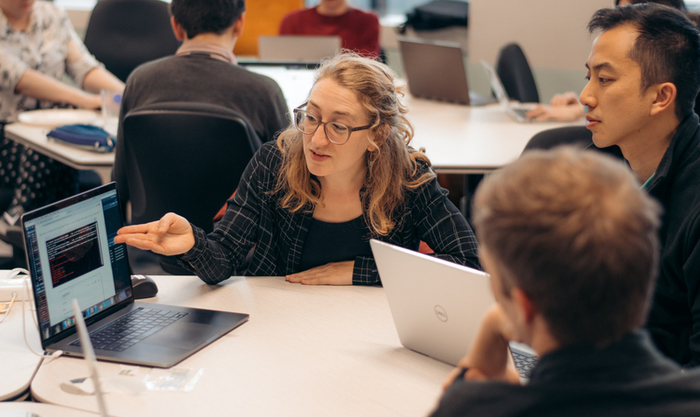
Day 1 started with a bang, in the beautiful north arts building at the University of Melbourne, and dusted off the tried and tested rOpenSci icebreaker. We then moved on to choose projects. Everyone moved around the room, exploring options, and we settled into groups.

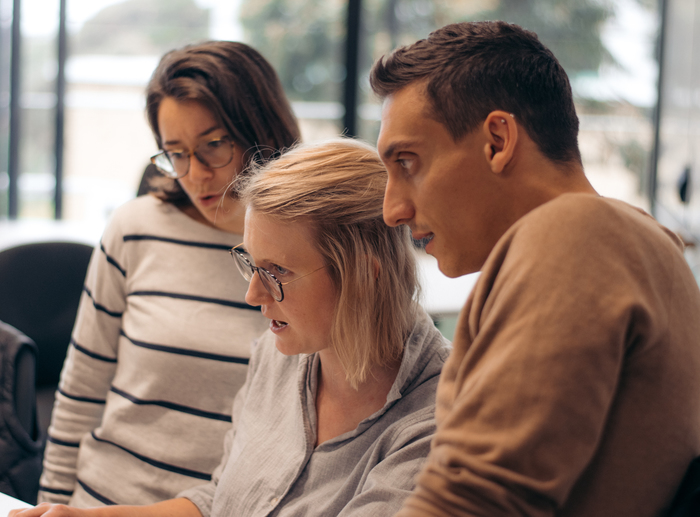
We worked on a variety of projects, ranging from some that we thought might be knocked over in a few hours, like ozbabynames. (Spoiler alert, it took longer than three hours), to documenting and learning gganimate, creating paper review toolkits, shortening / enriching the documenting/reading the documentation process with tl, automating the creation of vitae’s, simplifying the process of recoding free gender text responses with gendercoder, measuring walkability, making bindertools to recreate and reproduce analysis, and even generating synonyms. You can see the complete list of projects here.
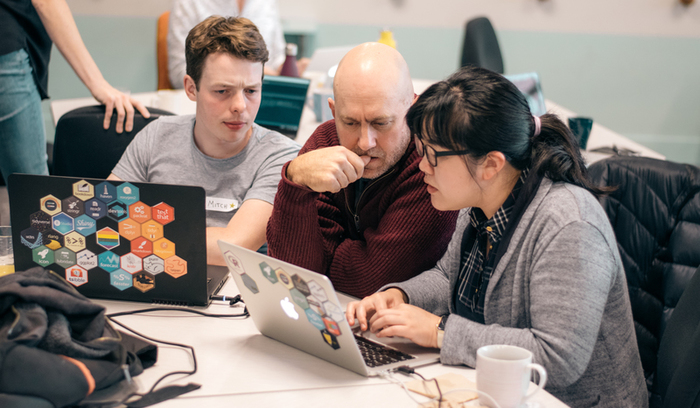
Throughout the conference, Saskia Freytag recorded conversations to capture the event. These were edited into the podcast “Credibly Curious”, in episode 6, “Ozunconf”, run by Saskia and me.
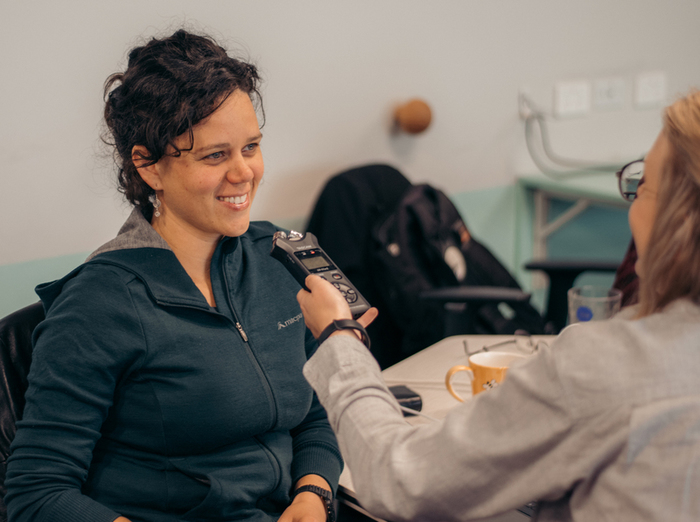
On the second day, Adam Gruer led a fireside chat on how we might continue the experience of the rOpenSci ozunconf after we wrap up. Among the suggestions were starting or joining coding clubs at your university or place of work. Adam also made the point that a reason so many people enjoy the unconf is that freeing up your time and expectations has the surprising effect of making you more productive, and to try and recreate that idea. Robbie Bonelli had a good way to summarise this:
We gain personal knowledge that we would never have gained working on our own, even if we never use or work on these things again. Make it about learning something new, this is how to break down the idea of having to get something out of this for your job.

We closed up the conference with 3-minute presentations from everyone on what they got up to over the past two days.
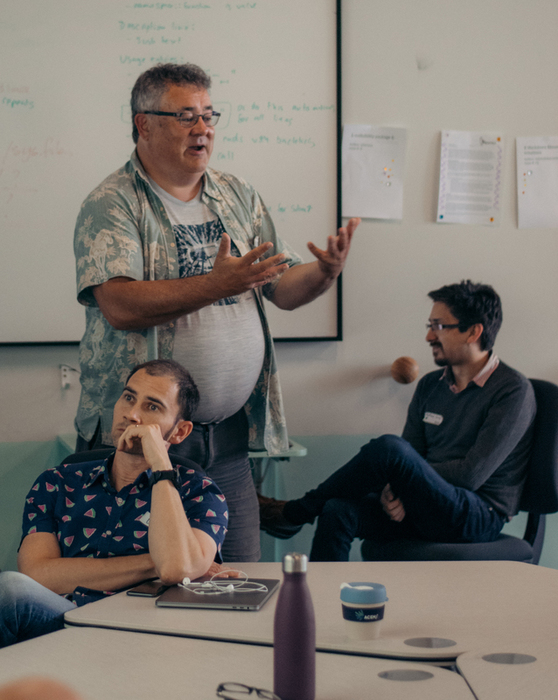


Looking back, it really is amazing how much can get done over a just a few days! We couldn’t have gotten it done without the help of our sponsors, Microsoft Azure, The R Consortium, RStudio, The University of Melbourne, and The Monash Business School.
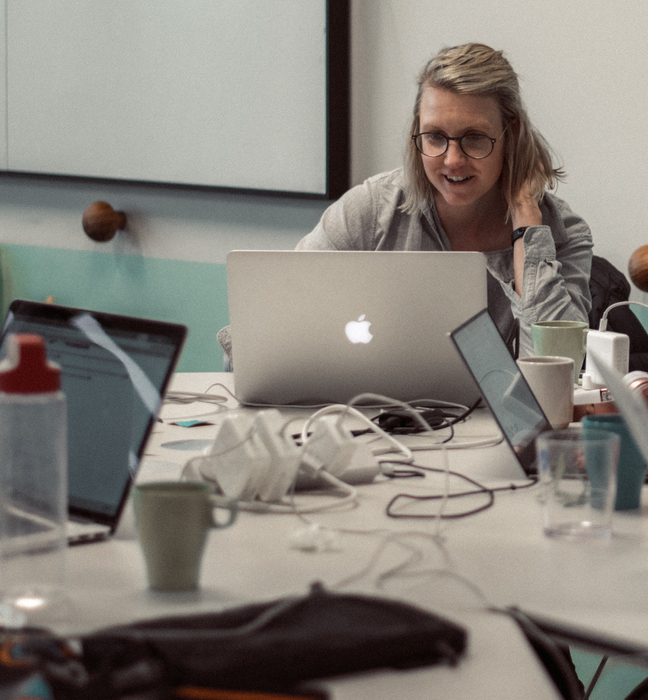
It’s been an absolute pleasure to bring people together for another great event. Just three years ago we ran the first ozunconf, and seeing how the community has changed and grown over the past three years has been a real privilege. There is nothing quite like seeing so many people together in the same space, enjoying coding together. Seeing people realise that they can contribute, and become more of what they are is fantastic.
Next year we are looking into moving the ozunconf to a different city in Australia, stay tuned for updates!


